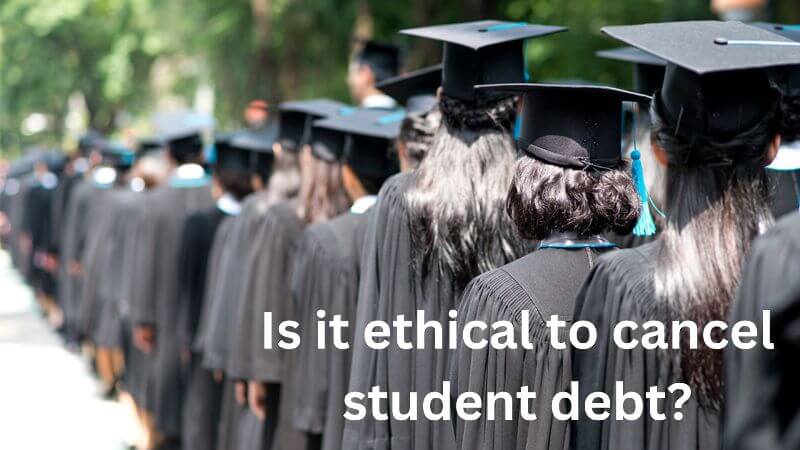There has been a lot of debate lately about the fairness of canceling student debt.
For me, It’s an easy to understand principle. You borrow money, you pay it back.
It doesn’t matter whether it’s a car loan, a credit card debt, a mortgage, or student debt. You borrow the money, you gave your word that you would pay it back, and you pay it back when the time comes.
There is a moral responsibility to pay back your debts. It’s not the job of the state or other tax-payers pay back your debts.
Why is this concept so controversial?
If debts are going to be forgiven, I would like the government to also forgive my credit card debts. It’s just a matter of fairness.
The way I see it, there are two main reasons why students don’t pay their debts.
- They go to a school they can’t afford, or
- They study a major that has a low return on equity.
Students decide to go to colleges that are out of their budgets when they can easily chose a less expensive alternative.
The average tuition and fees at ranked colleges are:
For public, in-state: $10,500
For public, out-of-state: $23,000
For private: $40,000
If you (or your family) re struggling financially, then go to a Public, in-state college. At $10,500/year, that’s $42,000 for four years. If you work during the summer to pay back the debt, your school debt could be much lower.
The other important factor is that many students chose majors that are very badly paid.
According to Indeed, the lowest paying careers are:
- Hospitality and tourism, average salary: $24,470 per year
- Theology and religion, average salary: $31,630 per year
- Design and applied arts, average salary: $49,290 per year
Whereas, according to College Choice, the highest paying careers are:
- Petroleum Engineering – $139,300
- Chemical Engineering – $93,150
- Nuclear Engineering – $92,500
Of course, you not everyone wants to be an engineer but if we only look at the finances, people who studied engineering are not the ones asking for debt relief. The one who are asking for debt relief are those chose a college that they were not able to afford, and studied a career with a low return on capital.
Everyone is free to study whatever they want, wherever they want but also, they have a moral responsibility to pay for the debt they incur. If they don’t want to pay for their debt, why should the rest of of?
Previous opinion posts
